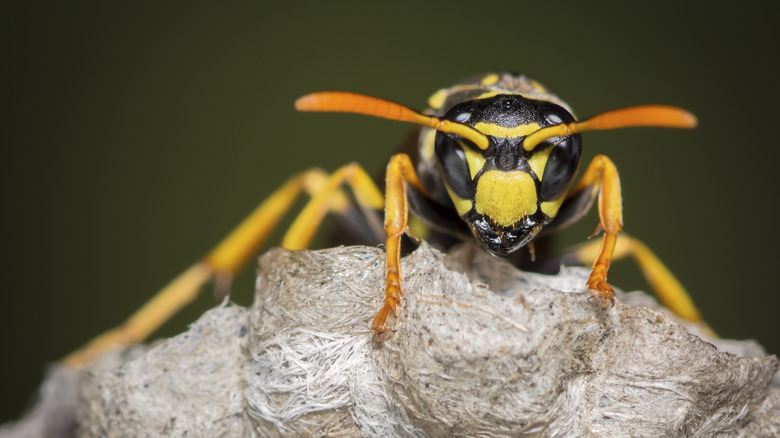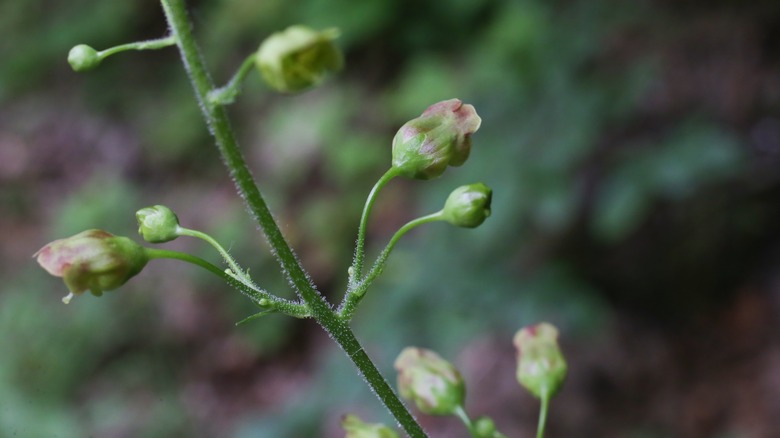The Weedy Plant You Don't Want In Your Yard If You're Trying To Keep Wasps Away
Although wasps can help certain plants thrive through indirect pollination, you may still want to keep them out of your yard. This makes sense considering the risk of being stung by these flying insects. Wasps sting when they sense a threat, but it isn't always easy to detect when they perceive you as one. As a result, you might fear that wasps in your yard could sting you or your family at random. If you have noticed these insects swarming around outside your home, make sure that you don't have any figwort growing in your yard. It could be attracting them to your outdoor space.
Wasps are drawn to this inconspicuous flowering weed due to its high nectar content. Adult wasps rely on nectar as a food source, so planting nectar-filled figwort in your yard is essentially inviting them onto your property. This is not ideal, especially for families with little ones or pets. And it's particularly dangerous for those with wasp allergies. Luckily, identifying and removing the figwort from your yard is an easy way to keep wasps away.
Remove figwort to help deter wasps
There is a chance that your property's yard or garden contained figwort before you even moved in. In this case, you may need some help identifying the plant so that you can remove it and help get rid of wasps. Figwort is tall and leafy, much like other weeds you may find in your yard. However, this plant is distinguishable because of the tiny flowers that grow toward the top. They can be various hues of yellow, purple, or green.
After you have identified figwort around your home, you can decide whether you want to remove it to keep wasps out of your garden. Figwort grows from rhizomes which can be removed as a clump without much difficulty. However, you may want to think twice before getting rid of them completely if you have plants that would benefit from the indirect pollination offered by wasps. If your garden is a safe distance from your home, you can remove the figwort from areas where you spend time outside and transplant it closer to plants that can benefit from the wasps. If the garden is too close to your house or where you and your family gather outside, you may want to remove the figwort completely to reduce the risk of getting stung.

